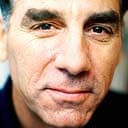New York banned the word nigger yesterday in a symbolic crackdown on the widespread use of the term in hip-hop songs, in films, and on the city's streets.
The city council voted unanimously 49-0 in favour of a motion to encourage New Yorkers to stop using the word and to learn its racist provenance. The resolution carries no sanctions and is designed to lead by example rather than through penalties; it is the latest move in an argument raging across the US over the common use of the word, especially in the black community, where it has morphed into a slang word similar to "mate".
The issue rose to the top of public debate in November when the former Seinfeld actor Michael Richards, who is white, hurled the term at black members of the audience at a comedy club in Los Angeles, later apologising profusely. There has also been a chorus from African-American politicians for black artists to rein back on the frequent use of the word in screenplays and rap lyrics.
Leroy Comrie, a New York city councillor who proposed the resolution, has called on the academy which runs the Grammy awards to withhold nominations from acts using it. At the awards last month, artists such as Ludacris and Chamillionaire were honoured for songs which contained the term.
Though the moratorium is purely symbolic, it has raised the hackles of champions of the first amendment, who oppose any attempt to involve government in regulating speech.
Robert Richards, of the Pennsylvania Centre for the First Amendment, said it "seemed a waste of government resources to pass resolutions that have no impact. It's just a feel-good move for the New York city council."
Finding something offensive was not enough to overcome the first amendment right to free speech, Mr Richards said, pointing to the supreme court's decision to uphold the right to burn the American flag, and its ruling that a man resisting military conscription had the right to wear a jacket in court saying "fuck the draft".
Marcia Williams, of the campaigning website Ban the N-word, said that it was a shame New York had to resort to a moratorium, because it showed the city's education system had failed to teach children about historical background. "This is a word that is rooted in hatred," she said.
The etymology of the word lies with the Latin "niger", Spanish "negro", and middle French "negre" meaning black.
One of the earliest uses of the written word was in 1786 by slave masters to label their Africans. It is through its application in slavery that it has come to be seen by many as the most offensive racial slur in English.
Roy Miller, a lawyer from Atlanta, Georgia, was invited to speak to a committee of the New York council when it debated the resolution on Monday. The civil rights committee voted by five to none to pass the resolution imposing a moratorium.
Mr Miller campaigned successfully in 1994 for the removal of the word from a popular US dictionary published by Funk & Wagnalls.
"At its worst, the N-word is the ultimate form of disrespect against black people. It is a dangerous snake which is liable to bite," he told the Guardian.
He said black entertainers were drawn to using it for money, "but no amount of money will make up for the damage it causes".
